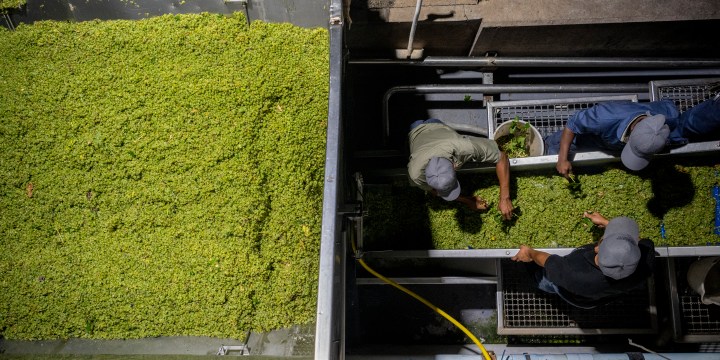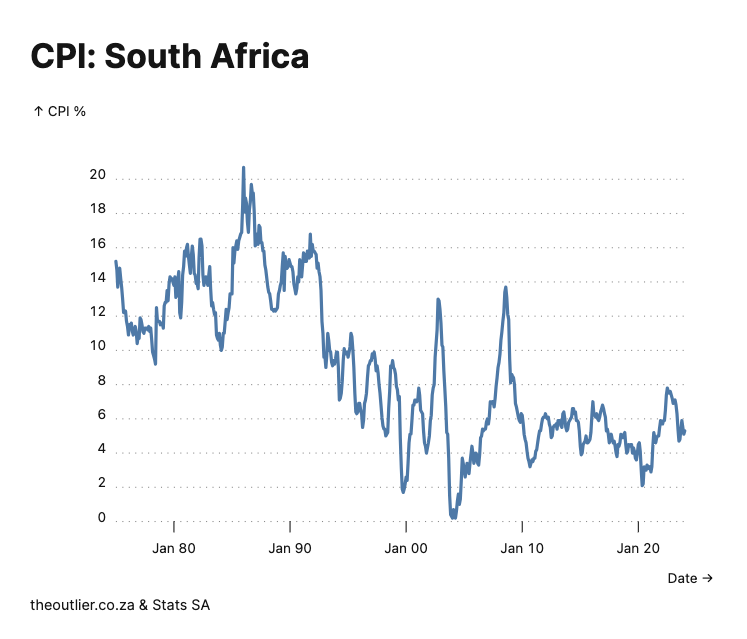BUDGET BLUES
Above-inflation hike in ‘sin tax’ is a blow for the wine industry

Hiking the price of wine by 80c and spirits by R5.53 might seem like a modest increase, but it's a big blow to an industry fighting an onslaught of illicit trade, a weak economy, a ports crisis and blackouts.
Each year, at budget time, South Africans expect to be punished for their “sins”: alcohol and tobacco. They’re discretionary items in a consumer’s budget and fair game for the tax collector.
This year was no different, as Finance Minister Enoch Godongwana once again explained that the cupboard was bare — so much so that his ministry is planning to tap into the SA Reserve Bank’s pot of gold to ease pressure on public finances. There’s less and less money for this and that, so the obvious remedy is tax increases on booze and smokes.
While parliamentarians sitting in the Cape Town City Hall might have guffawed at having to pay an extra R5.53 for their spirits, 14c for a 340ml can of beer or cider, 89c for sparkling wine and 28c for a bottle of still wine, those “pennies” add up and have a big impact on the industry as a whole.
The wine industry, in particular, is dismayed about the above-inflationary increases in taxes on its products — 7.17% on wine and sparkling wine, and 6.67% on brandy — because it has lurched from crisis to crisis in recent years.
Since Covid-19, when the government’s repressive lockdowns prevented the industry from trading freely and even moving its product offshore, SA’s wine industry has had to contend with repeat crises at the ports, rolling blackouts, crime and drought.
Industry body South Africa Wine has warned that the excise hike introduced by the National Treasury will inflict another blow to many wine businesses and further hamper the industry’s economic recovery.
Christo Conradie, stakeholder engagement manager for South Africa Wine, said despite their extensive engagements and submissions, the Treasury had not heeded their plea to keep excise inflationary, “thus ignoring the vital role of the wine and brandy industry in the larger economy and its significant contributions to job creation across the value chain, particularly in rural communities, as well as the continued pressure for this industry to remain sustainable”.
“In a time when growth and recovery are desperately needed, various crises, including the energy crunch, disruptions at the Port of Cape Town, and increases in input costs, to name but a few, are worsening the financial position the industry is currently in.”
Thriving black market
The Covid lockdowns gave rise to a thriving alcohol black market, which is increasingly tempting to consumers under pressure from the cost-of-living crisis.
Conradie said data showed that despite continued above-inflationary excise increases, legal alcohol consumption in SA remained relatively flat while the illicit alcohol trade was booming.
Excise taxes on wine, sparkling wine and brandy have outpaced CPI inflation since 2013. These taxes have more than doubled since 2010, while SA’s recorded per capita alcohol consumption has remained relatively static, according to World Health Organization figures.

But the black market has almost doubled in less than a decade.
“When prices rise faster than incomes, people can afford fewer goods and services. Cheaper goods, including illicit and black market products, become more tempting,” Conradie said.
“Without improved law enforcement, more regulations (including higher excise taxes) in the legal market are unlikely to have any impact. Considering the local context is crucial in designing policy regulations.”
Earlier this month, South Africa Wine called on the ministry to focus on other pressing matters in the industry, which it believes if addressed energetically will help the industry grow and improve the wellbeing of those who work in it.
This industry, through its agricultural footprint and extensive value chain, contributes about R56-billion to the national coffers, providing 270,000 jobs (or 1.8% of national employment). It also contributes R0.7-million to GDP for every R1-million in capital investment and generates 3.36 jobs for every R1-million in capital investment — more than double the national average of 1.18 jobs.
But fewer exports, rolling blackouts, illicit trade, geopolitical issues and policy uncertainty are squeezing farmers and producers dry.
Rico Basson, the CEO of South Africa Wine, urged the government to ensure excise taxes remain aligned with inflation rates and linked to the incidence alcohol policy framework set by the Treasury, to avoid unduly burdening the industry and producers. “The wine and brandy sector needs a balanced approach to taxation to ensure economic stability and foster fairness in the system.”
Disappointed
Dennis Matsane, Heineken Beverages’ head of integrated communications, agreed with Basson, saying while they appreciate the tough economic context that Godongwana had to navigate, the excise decision was disappointing.
The announcement means that cumulatively, taxes on alcohol have increased by between 8.5% to 10% above inflation since 2019.
“In South Africa, the legal alcohol industry makes a net positive contribution to society to the value of R62-billion (at 2019 prices) annually, supporting half a million jobs and many more livelihoods, including many SMMEs across our value chain,” Matsane said.
“Considering the growing unemployment rates, protecting legal, productive industries that provide sustainable jobs to our people is crucial. Thus, the above-inflation increases jeopardise the ability of the legal alcohol industry in South Africa to sustain this contribution.”
Peter Pentz of Groote Post wines outside Darling added that the industry had pleaded that the increase be kept in line with inflation. “That they did not do — they went over 7%. Some may argue that 80c per bottle, especially on the premium side, is not such a big number but it makes a big difference.”
Pentz believes the industry could have used the additional money to do more transformation work and recruit more people.
The key message is that the wine industry grows the economy of South Africa; it also grows employment, which is desperately lacking.
“I truly believe the solution lies within the agricultural sector to grow the job market, not only through wine sales but also through tourism. Now you get this blow.”
Exports are also dramatically down: last year, they had dropped off by 17%.
“I mean, we’re busy harvesting during load shedding. Harvesting with a generator. And our ports are a total mess.”
As Basson posted on LinkedIn after the Budget Speech, an excise raise on wine of CPIX plus 2.5% equates to an additional R60-million to the fiscus.
“So what could the wine sector have done with it? Well … you could have employed another 1,236 individuals for a year in the sector; doubled the export promotion that the industry invests annually to ensure our great wines get more traction internationally; doubled the annual investment in research, development and technology; and provided [a] R150,000 grant to each of our 400 small wineries to do promotions.” DM




















 Become an Insider
Become an Insider
Government is fast running out of feet to shoot.
It is also a reminder of how devalued the Rand is — a R5 increase being laughed at as “nothing.”
Just checked and today $1 buys R19.24 and €1 buys R20.82.
Have not checked the rouble rate but I am sure most government ministers do all the time.
I don’t understand how this increase in local tax is so devastating when for years, I can go into a UK supermarket and buy South African wine for less than I can when at home in SA. Are UK sin taxes so much lower than our local taxes, excluding the fact that UK distributors have had additional logistics costs to contend with? As for what local industry would have done with the additional R60m… pure conjecture.
Huh? Which supermarket is that, and which brand of SA wine are you buying? Last October we were in London, and Tescos had Porcupine Ridge Cab Sauv on “special” at GBP 7-50 a bottle, knocked down from 9-00. I might be slow, but that’s a “special” price of around R185-00. Never paid that much for Porky’s ever.